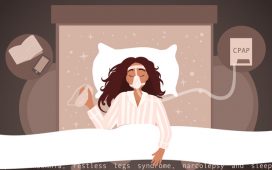The opioid crisis is a major public health problem that has affected millions of people worldwide. Opioid use disorder (OUD) is a complex condition that requires a comprehensive and interdisciplinary approach to treatment. Health care professionals, including physicians, nurses, and pharmacists, play a crucial role in addressing the opioid crisis, and it is essential that they have the knowledge and skills to effectively manage patients with OUD.
One of the key challenges faced by health care professionals in managing OUD is the lack of awareness about the disease. Many health care professionals are not trained in the recognition and management of OUD, which can lead to inadequate treatment and the continuation of harmful opioid use. A study by Coffin et al. (2017) found that only a small percentage of health care professionals were knowledgeable about the appropriate use of opioid analgesics and the management of OUD.
Health care professionals also need to be aware of the risks associated with opioid use and the importance of patient monitoring. The use of opioids can lead to tolerance, dependence, and overdose, and health care professionals need to be aware of these risks and be able to recognize the signs of opioid use disorder. A study by Dowell et al. (2016) found that health care professionals often prescribe opioids without appropriate monitoring or follow-up, which can lead to adverse events and the continuation of harmful opioid use.
Another challenge faced by health care professionals in managing OUD is the limited availability of effective treatments. Although there are several evidence-based treatments for OUD, including medication-assisted treatment (MAT), many health care professionals are not familiar with these treatments and do not offer them to patients. A study by Jones et al. (2017) found that the availability of MAT was limited in many areas and that health care professionals often lacked knowledge about the appropriate use of MAT.
To address these challenges, health care professionals need to be trained in the recognition and management of OUD. This includes education about the risks associated with opioid use, the appropriate use of opioid analgesics, and the availability and use of evidence-based treatments for OUD, such as MAT. Health care professionals also need to be equipped with the skills to monitor patients with OUD and provide ongoing support to help them achieve and maintain recovery.
In conclusion, the opioid crisis is a major public health problem that requires a comprehensive and interdisciplinary approach to treatment. Health care professionals play a crucial role in addressing the opioid crisis, and it is essential that they have the knowledge and skills to effectively manage patients with OUD. To address the challenges faced by health care professionals in managing OUD, it is necessary to provide education and training on the recognition and management of OUD, and to increase the availability of effective treatments.
References:
· Coffin PO, Sullivan MD, Klap R, et al. (2017) “Health care professional knowledge, attitudes, and practice regarding opioid overdose and naloxone prescription.” Journal of Substance Abuse Treatment, 74, pp.64-71.
· Dowell D, Haegerich TM, Chou R. (2016) “CDC Guideline for Prescribing Opioids for Chronic Pain—United States, 2016.” Journal of the American Medical Association, 315(15), pp.1624-1645.
· Jones CM, McAninch JK, Norland J, et al. (2017) “Barriers to medication-assisted treatment for opioid use disorder in rural areas.” Journal of Substance Abuse Treatment, 77, pp.69-75.
*This article was produced with the assistance of artificial intelligence. Please always check and confirm with your own sources, and always consult with your healthcare professional when seeking medical treatment.








